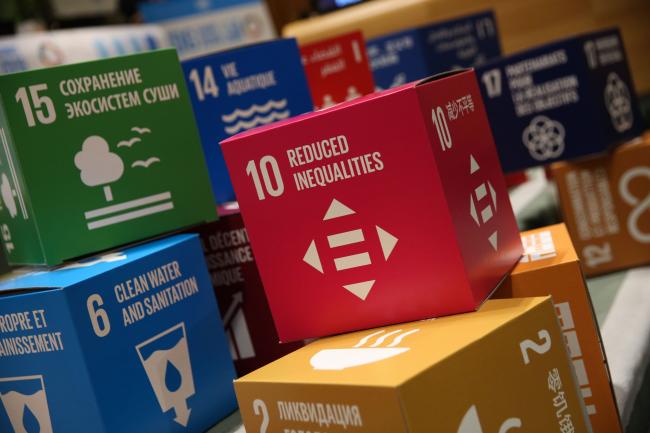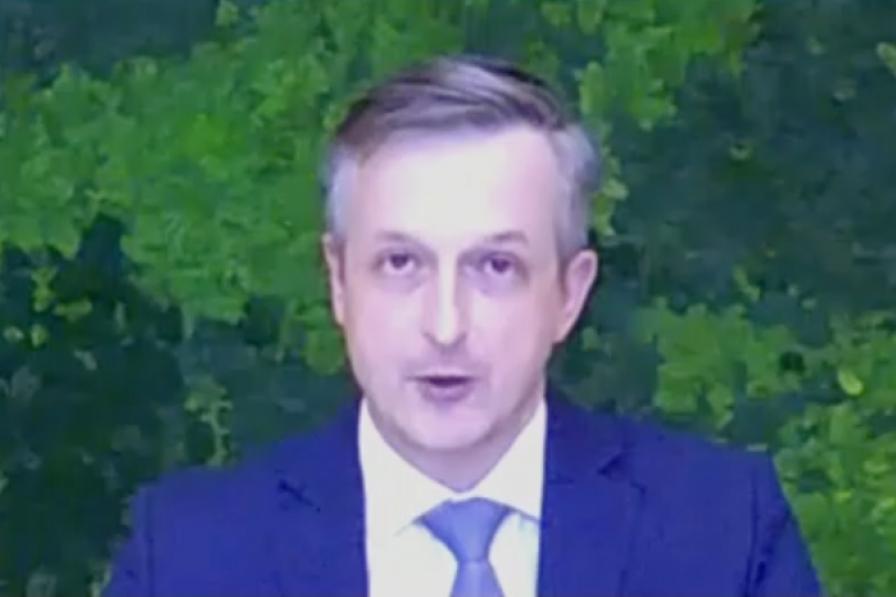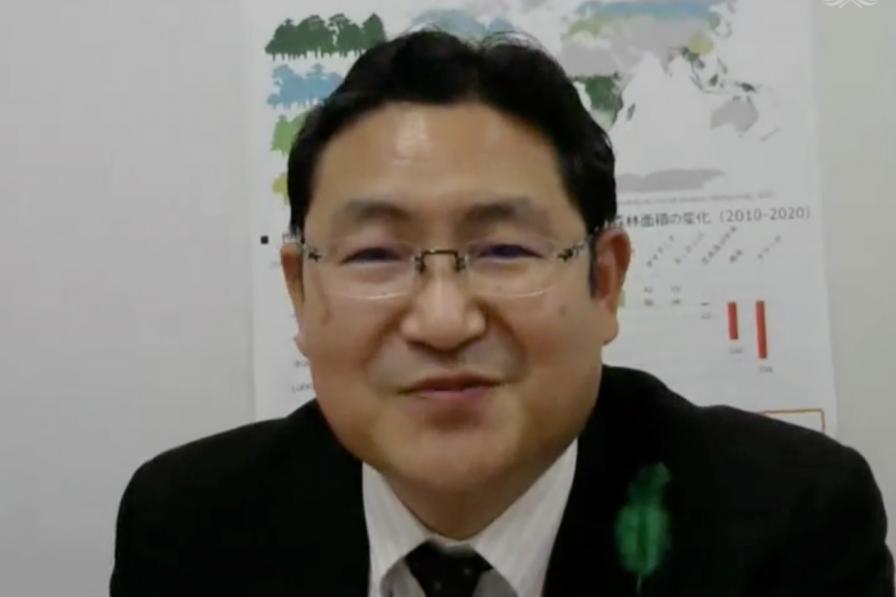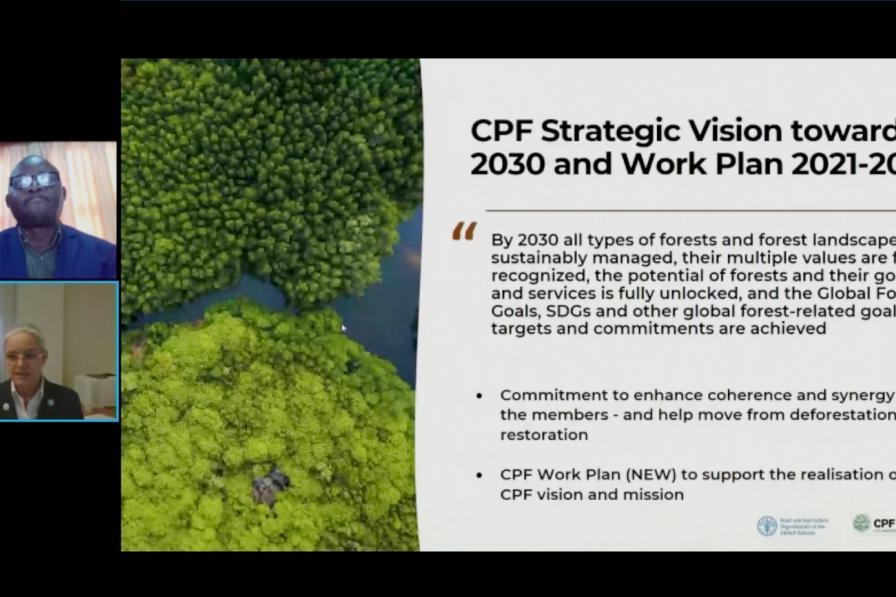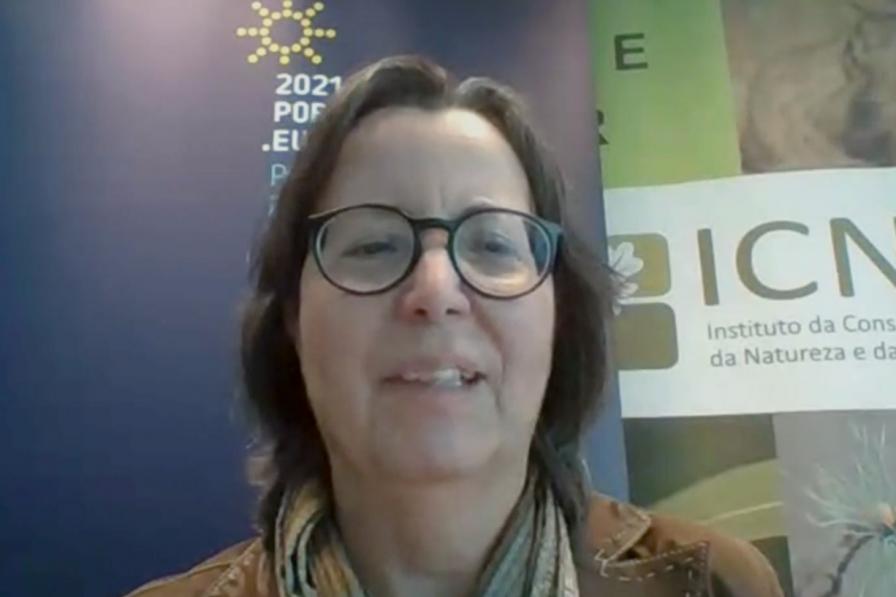The three Thematic Priorities for the 16th and 17th sessions of the United Nations Forum on Forests (UNFF) form the basis for advancing forest functions. These include socio-economic safeguards, biodiversity habitats, and forests as a stabilizing force for climate. These priorities are based on five United Nations Strategic Plan for Forests (UNSPF) Global Forest Goals (GFGs):
- GFG1: reversing the loss of forest cover;
- GFG2: enhancing forest-based economic, social and environmental benefits; and
- GFG4, GFG5 and GFG6: mobilizing financial resources and strengthening scientific and technical cooperation, promoting governance frameworks to advance implementation, and enhancing cooperation, coordination, and coherence, for sustainable forest management.
Tuesday’s session focused on these priorities through technical panel and general discussions.
During the panel discussion on Thematic Priorities in support of the UNSPF Ivonne Higuero, Secretary-General of the Convention on International Trade in Endangered Species of Wild Fauna and Flora (CITES), underscored that key elements of responsible trade of CITES listed species. She said all trade must be sustainable, legal and traceable. Gustavo Fonseca, Global Environment Facility (GEF), stressed that the COVID-19 pandemic is an opportunity to reset relationship with nature and that forests are central to this process. Sheam Satkuru, International Tropical Timber Organization (ITTO), underscored that progress on reaching the GFGs is hampered mainly by lack of financial resources and stressed the need to provide microfinance for small and medium-sized enterprises and smallholders.
During discussions on the interlinkages of the GFGs and their contributions to the Sustainable Development Goals (SDGs) and international forest related developments, several countries reported measures put in place to achieve GFGs, which have concurrently contributed to progress toward the SDGs and the Paris Agreement. Many drew attention to halting deforestation and forest restoration to increase forest cover and the contributions to improved biodiversity, economic benefits from forestry industry, and reduction of greenhouse gas emissions.
The final panel discussed the contribution of, and enhanced cooperation with, partners to achieving the thematic priorities. Panelists drew attention to significant collaborative initiatives including the Sustainable Wood for a Sustainable World Initiative, and the potential for enhanced cooperation around the UN Decade on Ecosystem Restoration, which will be launched on World Environment Day in June 2021.
Forum members highlighted projects in collaboration with Collaborative Partnership on Forests members and, UNFF major groups and other regional and subregional organizations. They noted the need to address global forest policy fragmentation, enhance youth involvement in UNFF work, and strengthen capacity in building resilience of forest ecosystems, forest fire management, and managing forest products.
While UNFF’s links with SDGs has in most years revolved around contributions to SDG 15 (life on land), and SDG 13 (climate change), Tuesday’s discussions also established the Forum as a leading voice on SDG 12 (responsible consumption and production), as many states highlighted efforts to ensure deforestation-free supply chains. As some noted, this recognition reaffirms the multifunctionality of forests for overall ecosystem health and, consequently, human health.
